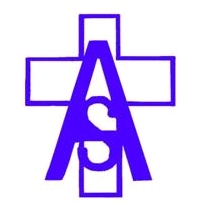KS1 Curriculum
Reading and Phonics
High quality phonics teaching takes priority in KS1 and is taught systematically every day following the Monster Phonics scheme, a government validated Systematic Synthetic Phonics Programme (SSP). Phonics lessons are engaging, multi-sensory and enjoyable.
Teachers and practitioners have clear expectations of pupils’ phonics progress term by term. Children falling below this benchmark are identified and same day interventions are put in place.
In Key Stage 1, children read Monster Phonics decodable reading books which are matched to their phonic ability ensuring children are reading books with 90% accuracy.
The children are given daily opportunities to practise and apply the reading and spelling rules they have been taught within most subject areas using a cross curricular approach.
Every year in June, children in Year 1 take part in a government Phonics Screening Check. Any children who do not pass in Year 1 are re-assessed in Year 2.
A Phonics workshop and a Phonics Screening Check workshop are run every year to give parents more information and the opportunity to ask any questions they have. Parents are informed by letter (sent via Parent Pay) and reminders of dates are published on the weekly newsletter.
Writing
Writing activities take place daily in Key Stage 1, based on the National Curriculum. Writing is a key feature of the whole curriculum. The children are taught to write for a variety of audiences and enjoy writing imaginative stories, poetry, letters and reports.
We strive for our children to form correct letter formations, joining and good handwriting habits. Children are introduced to cursive from early years, and by the end of Year 2, children are expected to join their letters. We use the Letter Join Programme to support our handwriting teaching.
Maths
We use the Abacus Maths Scheme as a framework for our Maths teaching to ensure effective coverage of the National Curriculum. Maths teaching is supplemented by alternative materials such as White Rose Maths, to ensure lessons are engaging, multi-sensory and enjoyable.
By the end of Year 2, children should know the number bonds to 20 and be precise in using and understanding place value. Children should read and spell mathematical vocabulary at a level consistent with their increasing word reading and spelling knowledge.
Science
The principal focus of science teaching in Key Stage 1 is to enable pupils to experience and observe phenomena, looking more closely at the natural and humanly-constructed world around them. They are encouraged to be curious and ask questions about what they notice. They are helped to develop their understanding of scientific ideas by using different types of scientific enquiry to answer their own questions, including observing changes over a period of time, noticing patterns, grouping and classifying things, carrying out simple comparative tests, and finding things out using secondary sources of information. They begin to use simple scientific language to talk about what they have found out and communicate their ideas to a range of audiences in a variety of ways.
Year 1 Science Programme of Study:
- Plants
- Animals, including humans
- Everyday materials
- Seasonal changes
Year 2 Science Programme of Study:
- Living things and their habitats
- Plants
- Uses of everyday materials
- Animals, including humans
Topic
History and Geography are taught through topics. Some topics are history based, some are geography based and some are both. Each topic lasts a full term, and it is taught cross curricular where possible.
Year 1 Topics:
- St Anne's and Beyond
- Space Explorers
- Land Ahoy!
Year 2 Topics:
- It's the Only Way to Travel!
- Explorers
- All Things Wild and Wonderful (Australia focus)
Geography
Children develop knowledge about the world, the United Kingdom and their locality. They understand basic subject-specific vocabulary relating to human and physical geography and begin to use geographical skills, including first-hand observation, to enhance their locational awareness.
History
Children develop an awareness of the past, using common words and phrases relating to the passing of time. They know where the people and events they study fit within a chronological framework and identify similarities and differences between ways of life in different periods. They use a wide vocabulary of everyday historical terms. They ask and answer questions, choosing and using parts of stories and other sources to show that they know and understand key features of events. They understand some of the ways in which we find out about the past and identify different ways in which it is represented.
Music
We use the Charanga scheme as a framework to support our Music teaching.
Children are taught to:
- use their voices expressively and creatively by singing songs and speaking chants and rhymes
- play tuned and untuned instruments musically
- listen with concentration and understanding to a range of high-quality live and recorded music
- experiment with, create, select and combine sounds using the inter-related dimensions of music.
Year 1 and 2 learn, rehearse and perform a Nativity performance every year.
Physical Education
Children develop fundamental movement skills, become increasingly competent and confident and access a broad range of opportunities to extend their agility, balance and coordination, individually and with others. They are able to engage in competitive (both against self and against others) and co-operative physical activities, in a range of increasingly challenging situations.
